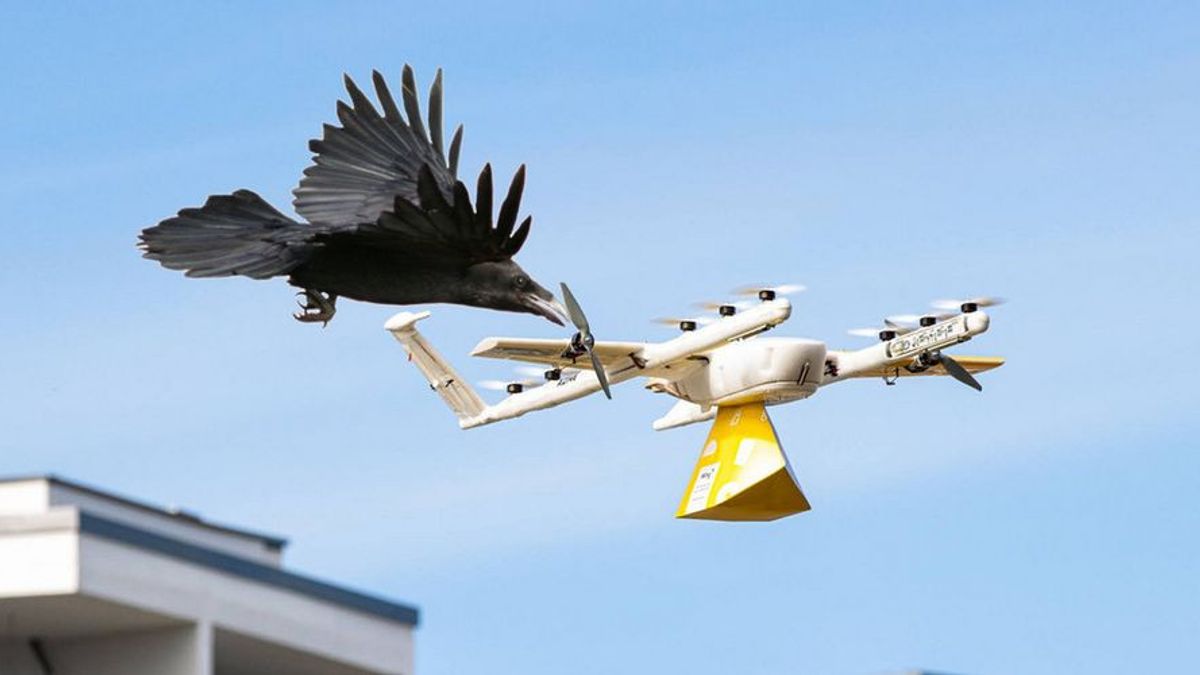JAKARTA – A Google subsidiary, Wing, was forced to stop drone deliveries in parts of Australia following repeated and persistent attacks by crows and other large birds.
Wing has been delivering food, drinks, medicine, office supplies, and other daily necessities. The company recently celebrated 100,000 deliveries of this number, including more than 50,000 in the Australian city of Logan, where the company says drone deliveries are made almost once every 30 seconds during its service hours.
In addition to Canberra and Logan in Australia, Wing also runs drone delivery operations in Christiansburg, Virginia, and Helsinki, Finland. The company claims that its shipments grew 500% from 2019 to 2020. Even its total shipments in just the second quarter of this year already surpassed its overall volume for the entire year 2020.
Australia has been one of the pioneers in the use of drones and even plans to use unmanned quadcopters to detect cases of COVID-19, before privacy concerns put an end to the initiative.
According to a report from Australia, Wing's delivery service is facing problems from an unexpected quarter. One that the company needs to address before it can restart its operations in the Australian territory where it was forced to be temporarily suspended.
According to a Canberra Times report, Wing's delivery drone was attacked by crows as it flew to and from their delivery location. Magpies, eagles, eagles, and other large birds also attack quadcopters. This action forced the company to temporarily stop its operations to certain customers. It's not clear why the birds reacted this way, but the report suggests a possible result of territorial behavior during the spring nesting season.
In a written statement provided to customers, Wing said that the "territorial behavior" exhibited by "some birds in the area" was behind the company's decision to temporarily suspend its services.
The ABC, reports the company is now considering its options on how to restart its operations in the city while ensuring the safety of the birds. In a statement to the media, a Wing spokesman said the attacks were "very rare," and no birds were injured in this incident.
Speaking to the Canberra Times, a drone expert suggested that it would be best if drones could avoid nesting locations during the season. Wayne Condon, chief pilot and instructor at UAV Training Australia, also recommended that drone operators should keep drones away from attacking birds to ensure bird and drone safety.
"In the end, it's their sky and we are the visitors," he said. He also claims that the best time to avoid most bird strikes is in the morning.
Conflict between birds and drones is nothing new and hobbyist drone operators have been dealing with bird strikes for a long time. However, grounding the “birds” of one of the world's leading drone delivery services is something that needs to be addressed as the service improves in the years to come.
Drone-delivery startups like Wing are already dealing with stifling laws and worrying regulatory agencies banning them in many countries, including much of the United States. Now this nascent industry must deal with nature to prevent it from slipping before it can even begin its journey properly.
The English, Chinese, Japanese, Arabic, and French versions are automatically generated by the AI. So there may still be inaccuracies in translating, please always see Indonesian as our main language. (system supported by DigitalSiber.id)








